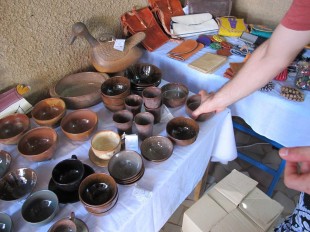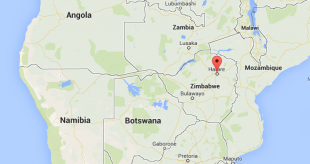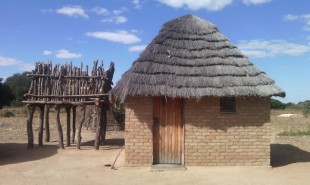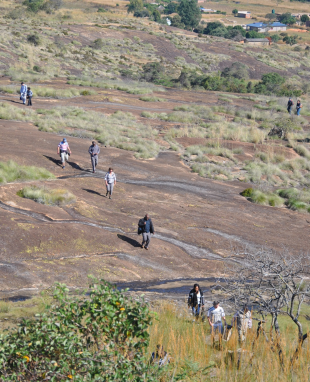It feels like a lifetime since I was sitting in my kitchen in Ouagadougou, Burkina Faso, reflecting on my week as an International Citizen Service (ICS) volunteer, and trying to sum it up in under a 1000 words for my first DFID blog. Two years later, I'm now living in Harare and working for DFID. Here's hoping that my blogging skills have improved…

Soon after leaving Burkina Faso, where I was working for Tigoung Nonma, a cooperative for artisans with physical disabilities, I was lucky enough to be given a place on the DFID graduate scheme. It's a brilliant 50 week placement that provides graduates with the opportunity to work for a government department in the development sector. I was placed in the Research and Evidence Division, where I supported the management of the Health Research portfolio. Working alongside passionate and experienced colleagues, I learnt a lot about both the technical and corporate aspects of the divisions work and felt inspired to stay on in DFID at the end of my placement.
My hard work paid off and I was successful in getting a permanent job within the division as a Deputy Programme Manager. I worked in the ‘Evidence into Action’ Team, a team that works to build the demand for, and supply of research evidence so as to maximise its impact on the lives of the poor. I learnt a lot in this team and I loved working in the London office but when offered a maternity cover post in Zimbabwe, I could not refuse the exciting opportunity.

I've been in Harare for about 3 months now. The laid back and easy vibe of the city, along with the welcoming and friendly people, has enabled me to quickly settle in and feel at home. Harare is a small city, making commuting and travelling around quick and easy (saying this does feel ironic, as I did spend the majority of my first week lost - due to the lack of road signs and working street and traffic lights…).
The DFID team here has 3 main objectives:
- Supporting Zimbabwe to protect and rebuild their capacity to deliver basic services – including health, water, sanitation and hygiene, and education services to the poor.
- Providing assets and skills to build livelihoods, linking the poor to potential markets for their goods, business opportunities and micro-finance, and renewing essential infrastructure.
- Helping to strengthen democracy and improve economic governance.

The main focus of my work is on the first of these 3 objectives. I work alongside programme management staff and a public health expert to manage DFID Zimbabwe's health portfolio. This consists of a maternal and neonatal child health programme, which aims to improve health services available to mothers, young children and babies, and the sexual, reproductive health rogramme which focuses on improving services so that patients can get access to the health care they need without having to pay fees or travel long distances.
In addition I manage the finances for the education and water and sanitation hygiene programmes, which includes monitoring programme progress and liaising with partners, other donors and members of the Ministry of health and child care.

This is my first experience of both living in Zimbabwe and working overseas for DFID. By writing this blog I hope to share my experience and the work that DFID is carrying out here.
For further detail on what the UK spends on development in Zimbabwe, see the DFID Zimbabwe operational plan or have a look on the Development Tracker, a relatively new tool that enables you to explore international development projects funded by the UK government by country and sector.
Keep in touch. Sign up for email updates from this blog, or follow UK in Zimbabwe on Twitter and Facebook.

Recent Comments